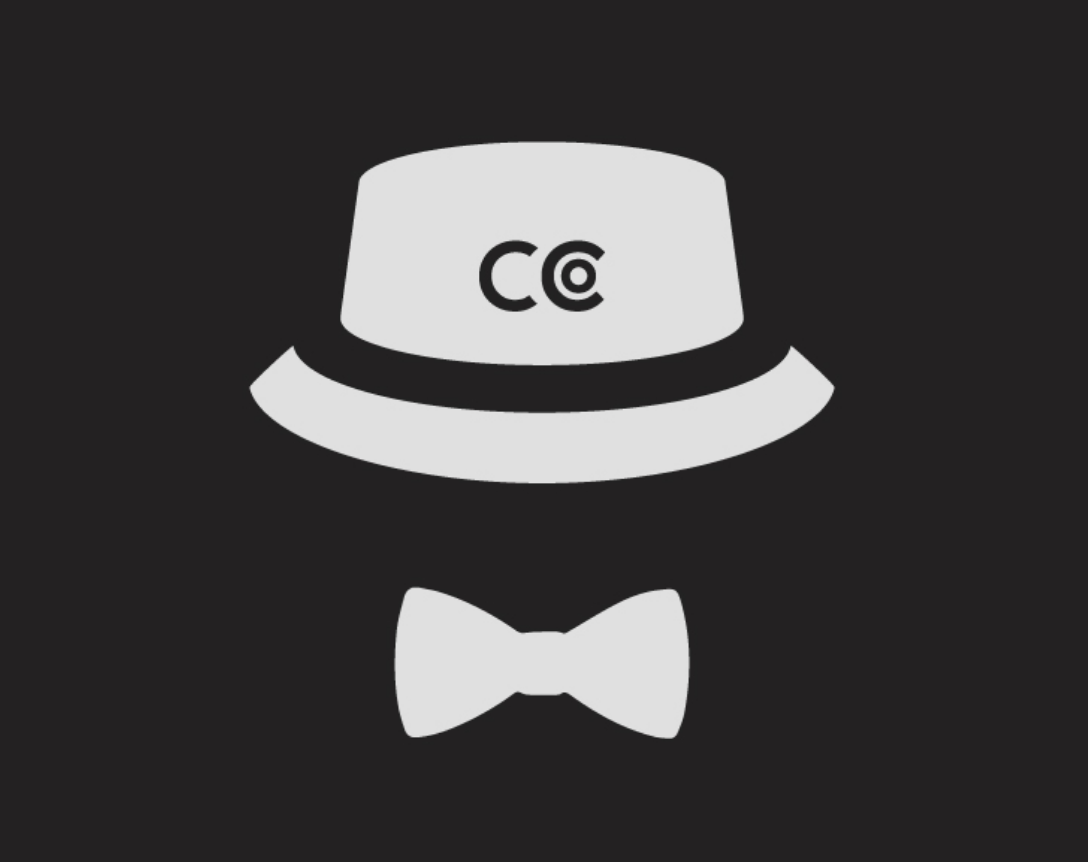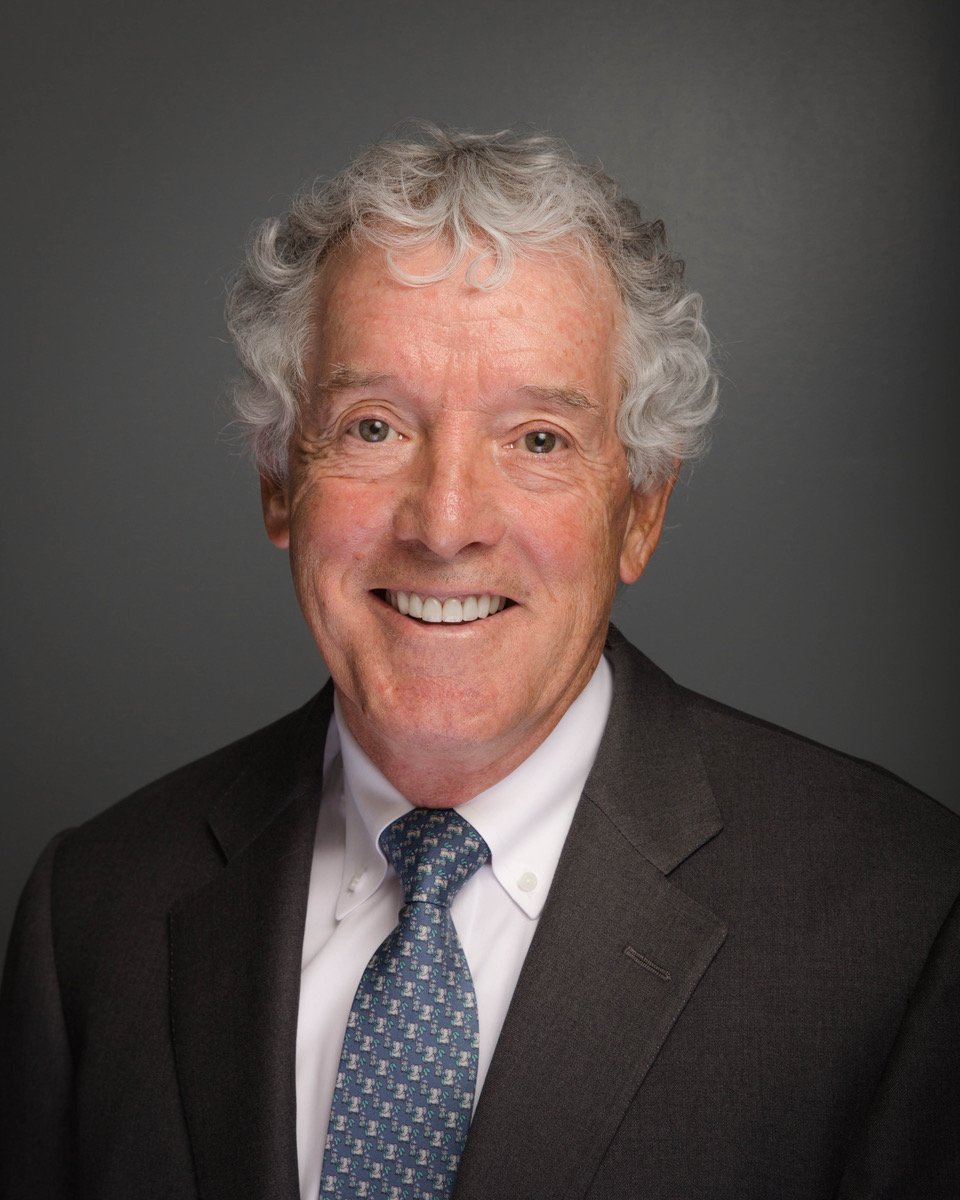Official Caddying Story: Ro Fallon
Mr. Fallon is President, CEO and Co-Founder of Promontory Therapeutics. He is a highly respected leader with decades of global transactional and strategic leadership. He is former Chairman & CEO of The Korea Exchange Bank, a large publicly-traded company, and prior to that he ran all of Asia-Pacific for JP Morgan Chase.
He holds a BA in Mathematics from Ohio University, and an MBA from Harvard Business School. Mr. Fallon is also Chairman Emeritus of The Council on International Educational Exchange (CIEE), and is a member of The Council on Foreign Relations. He is a trustee emeritus of the Ohio University Foundation and a past recipient of both the Ouimet Scholarship and later the Ouimet Fellowship and is now a benefactor of the Francis Ouimet Scholarship Fund.
At which golf course did you first caddie, and how old were you when you started?
I began caddying at Hyannisport Club in Cape Cod when I was 13 years old.
Why were you compelled to become a caddie?
I was a city kid; my father was a Boston police officer. I needed money to hopefully buy a car or maybe one day even try to go to college. My cousin had caddied during the summer, so I gave it a try.
Take us through your first day on the job, who was your first loop?
It was some time ago, but let me share what I recall and also tell you about a memorable loop. We lived in Marine tents with wooden floors. There were about 10 tents, housing 80-100 caddies in total. We worked seven days a week and were up by 6:30AM. The younger kids carried singles, and the older guys carried doubles. We had to turn in all of our earnings and, by summer’s end with lots of loops, we could walk away with almost $2000 in cash.
The Kennedy’s were very prominent fixtures in Hyannisport then as their family compound was located on Squaw Island, adjacent to the golf course. At that time JFK was President and he played golf at the course, so we even had to get secret service clearance. In 1962, I was assigned to caddy for JFK’s mother, Rose Kennedy. She’d come out late in the day and play a few holes. She liked having a caddy with her. Even though I was picked randomly to be her caddie that day, I’ll never forget. She turned to me and asked, “Where do you go to school, caddie?”
Me: “Boston Latin School”
Rose: “That’s Joseph's school, very good.”
She was referring to her husband, Joseph P. Kennedy, the President’s grandfather. So, I became her regular caddy, working for her several times a week late in the afternoon around 4 o’clock. She never mentioned my name, she just asked for the caddy from “Latin School”. So I became known as Rose Kennedy’s caddie.
Being President at the time, JFK played the course a few times that summer, and I got to caddy in his group (pictured below). His foursome included Ted Clifton (military adviser), David Ormsby-Gore (British ambassador to the US), and Pierre Salinger (press secretary). I was on Salinger’s bag, who was larger than life, sporting a big cigar and seemingly full of stories for the others. But, I’ll never forget seeing JFK walk up to me for the first time. He was tall, athletic, and tan. He was rather imposing. Right away, he asked, “Are you a Democrat or Republican?” I totally froze. I didn’t actually know. It didn’t occur to me before that moment!
What was the biggest mistake that you made during your caddying career?
Hyannisport is right on the water, and it’s easy to hit a ball into the salt marsh. One time, a guy tried to clear a corner of the marsh but came up short. He asked me if I had the line on the ball, which I did, using a sailboat in the distance to mark its entry point. When we got up there, he intended to go into the marsh and hit the ball if we could find it. But, I forgot that a sailboat keeps moving, and we couldn't find the ball. I never used moving objects for entry lines again.
What did you most enjoy about caddying?
The caddy camp was a pretty formative experience. A bunch of guys that you didn’t really know but who came from similar backgrounds. We were 13, 14, or 15 years old and wanted to be away from our parents - wanted to spread our wings. There were debates ranging from sports to girls to the Big Bang Theory going deep into the night. Occasionally, there were some minor scuffles, but most disputes were settled in our rather aggressive touch football games, especially against another nearby caddie camp. There were several on Cape Cod then. And, even though our caddie fees were collected from us after each round to be saved on our behalf, I regularly managed to peel off a few bucks without anyone noticing, so that helped make me a little more popular whenever a group of us boys would venture into town.
The beauty of it was that you were able to figure things out for yourself and were in an environment where one could even fail. However, you couldn’t be a screw up. I remember the caddiemaster often telling us, “I’ll give you the dime. I’ll give you the dime.” This was the cost of the phone call that would be used to inform your parents if you got thrown out.
Tell us about some of the people for whom you caddied, did any of them contribute to your career in a meaningful way?
I caddied for some very nice people and some not as nice. In that way, you figured out whom you wanted to emulate and what type of person you wanted to become. But, the real credit for aiding my career belongs to the Ouimet Foundation. The organization set me on an unimaginable course in life.
College
My caddying background led to an interview with the Ouimet Scholarship board. I think it was the first time I wore a suit jacket, along with a white shirt and tie. They asked a lot of questions about my aspirations, what I learned from caddying, and why I wanted to go to school. I’d done well enough at Boston Latin and was prepared for college but was by no means a star. Afterwards, I was told to sit outside, as a lot of other kids went in and did the same. I was left out there for a while, so I figured that I’d blown it.
But, later they called me back in. What I didn’t know was that in addition to the program director, Roger Grant, there was a board member named J. Leslie Rollins, an associate dean at Harvard Business School. They told me that I was going to attend Ohio University on full scholarship. I wasn’t sure how that was possible since I hadn’t even applied. They gave me the school’s catalog and an application to fill out post haste. The university, it turns out, had a new president from Boston who was interested in recruiting young men from Boston, and I was a fit. And, although Athens, Ohio seemed like the other side of the world to me, it was an idyllic college environment and exactly what I wanted after commuting by subway into Boston for school over the previous six years.
What I didn’t fully understand at the time was that I was being tagged, monitored, and mentored. As a freshman, I was invited to breakfast with the university president, who later wrote my letter of recommendation to Harvard Business School (HBS). I loved my time at Ohio and did well enough in school, in addition to being a dorm president and serving on student government.
HBS
Upon graduation, the Ouimet brass, in particular Les Rollins, steered me toward HBS. Now, I didn’t know Harvard Business School from a piece of toast, but they encouraged me to apply and even awarded me the Ouimet Fellowship to pay for my graduate studies. But, when I got there, it was 1969, and the Vietnam war was at its peak. I felt out of place pouring over business case studies, so I left to join the Peace Corps, with the assumption that I’d return after two years. My parents thought I was crazy!
I ended up teaching math and science with Catholic missionaries in Samoa. It was an incredible experience, and two years stretched into four, resulting in my losing my spot at HBS. But, one day I sat on a banana crate and penned an essay to reapply to HBS. I told them that I couldn’t believe they’d admitted me four years ago, when I really had no clue who I was and what I wanted to do with my life. After teaching for a few years, I had witnessed the difference that I’d made in my students’ lives. Now, I knew that if I wanted to make an even bigger difference, in countries and economies, I needed to go to business school.
Fortunately, they admitted me again, and I had a great business school experience, with the Ouimet Fellowship awarded again. Upon graduation, I couldn't wait to get back to Asia, so I went to work in international banking at Citibank, which was the preeminent bank in the world at the time.
That’s what sparked my career, and all of it came out of caddying and the Ouimet Foundation.
What was the biggest lesson that you learned from caddying that helped you succeed as you progressed in life?
It was the ability to observe adults in an environment that you wouldn’t otherwise, stepping out of your class, if you will. That was a formative experience. For example, some golfer would ask if I was going to college and where I intended to go. If you didn’t have a plan, you knew to start thinking about it. And, this wasn’t my father. It’s some guy I’m caddying for, so it has a substantive effect on you.
If you could nominate one former caddie who went on to enjoy success, whose Official Caddying Story would you like to hear?
Brian Riordan, we were both Ouimet Scholars at Ohio University and have remained good friends. He’s from Worcester, MA but moved to Montreal, Canada, where he became a highly respected appellate court judge, bi-lingual and skilled in civil and common law.
*This interview has been edited and condensed


